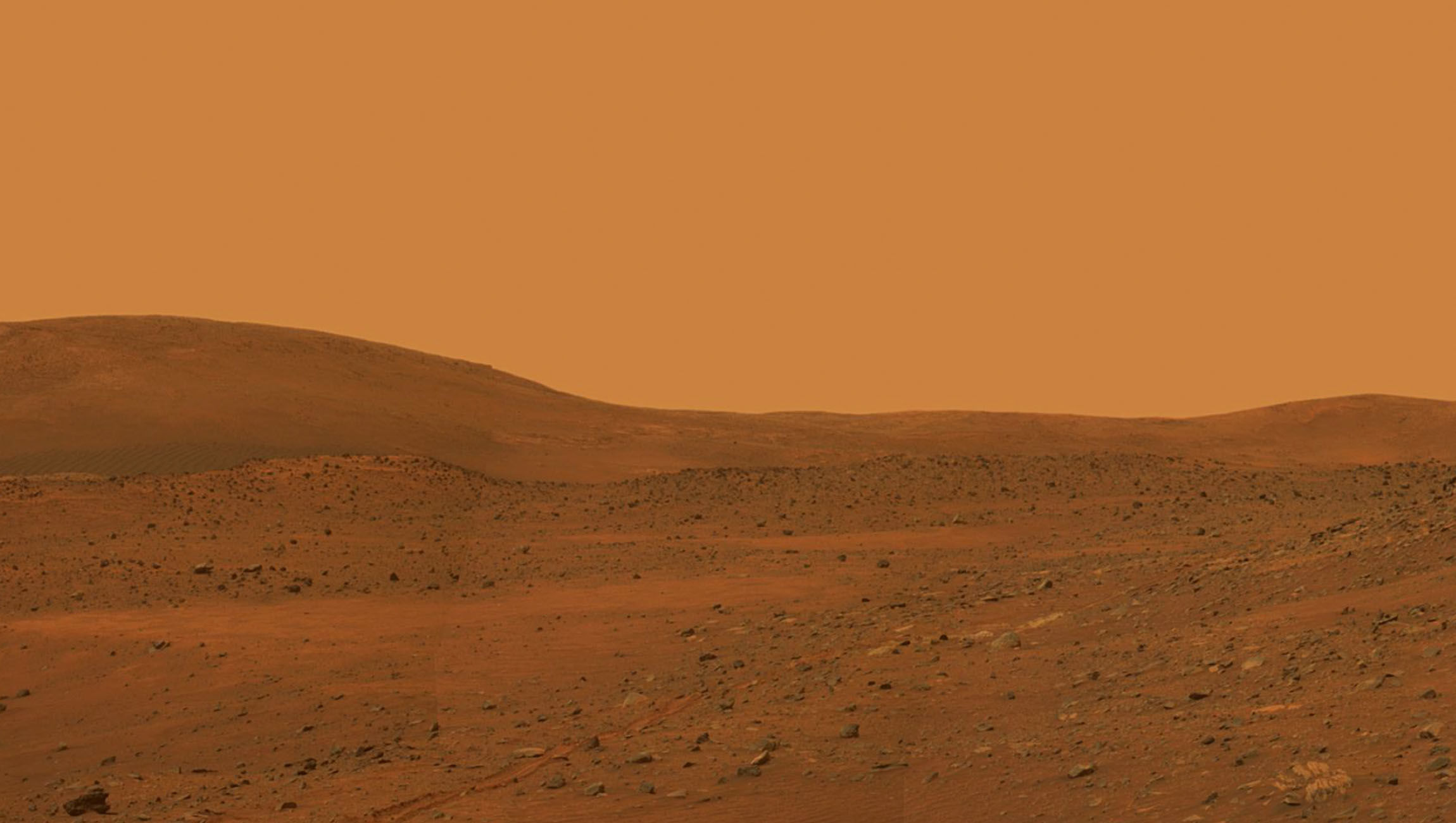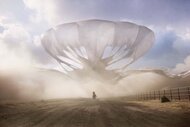Create a free profile to get unlimited access to exclusive videos, sweepstakes, and more!
Deep space travel could mess with your head—literally, your brain

While humans are anxiously looking to Mars as the next frontier after we touch down on the moon again, something besides the immensely long trip is making us hesitate.
Mars is bombarded by killer radiation. What is thought to have wiped out most of its water, almost all of its atmosphere and any hypothetical life that might have been crawling around (unless it’s buried deep beneath the surface and has all the resilience of a tardigrade) could end up frying astronauts’ brains without the right safety precautions. If this is the Red Planet, who knows what lurks further out in in deep space.
While we haven’t sent one of our species that far yet, a recent study has revealed that the levels of radiation on Mars, when recreated in a lab, gave mice serious neural and behavioral impairments.
“Mice displayed severe impairments in learning and memory, and the emergence of distress behaviors,” said Charles Limoli and colleagues in a study recently published in eNeuro. “Behavioral analyses showed an alarming increase in risk associated with these realistic simulations, revealing, for the first time, some unexpected potential problems associated with deep space travel on all levels of neurological function."
Until now, we haven’t really had advanced enough technology to simulate exposure to deep-space radiation accurately. The short-term and high-dose rate exposures of radiation that mice had been exposed to in previous experiments were not close enough to what it’s really like on the sun-blasted Red Planet. Exposing the animals to chronic, low-dose radiation for six months gave a much more accurate representation of what could potentially happen to humans.
Humans just weren’t made for deep space. Extended radiation exposure messed with memory and learning by impairing cellular signals in the hippocampus and prefrontal cortex in mice, which may not be us but are also Earthlings. Formation, storage and organization of new memories happens in the hippocampus. This is why something certain things (such as the perfume your grandma wore) may trigger particularly strong memories.
No wonder, as LImoli and his team said, their study “points to the heightened risks associated with NASA’s upcoming plans for travel to Mars.”
Behavioral displayed by the mice occurred in the prefrontal cortex. That part of the brain influences, among other things, decision making and social behavior. Things like this are going to be extremely important when it comes to figuring out what to do if the spacecraft hits turbulence and during the months that astronauts will spend cramped together in a small space. Throw something like that off, and the results could be disastrous.
Let’s just say Mars isn’t destined to be a vacation destination anytime soon.














